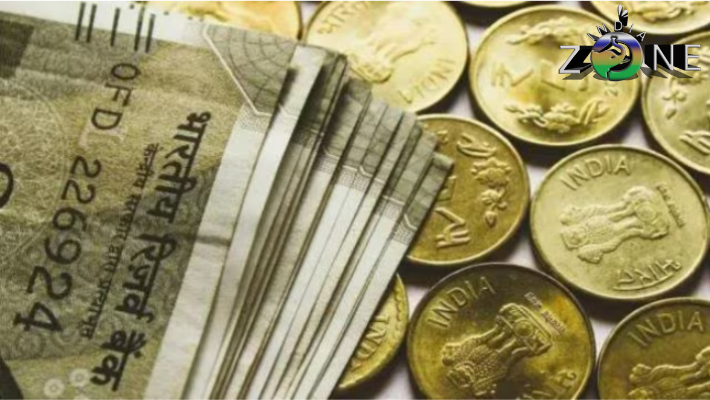
The visit of External Affairs Minister S Jaishankar to Singapore marks a significant step in the ongoing efforts to strengthen the strategic partnership between India and Singapore. During his stay from October 18 to October 21, Jaishankar engaged in a series of bilateral meetings aimed at deepening the already strong ties between the two nations.
The primary focus of these discussions was Jaishankar’s meeting with Tharman Shanmugaratnam, the recently elected president of Singapore. The high degree of diplomatic contact between Singapore and India is demonstrated by this encounter, which also highlights their shared desire to develop a robust, diverse relationship. The conversation with President Shanmugaratnam was a chance to restate the shared ideals and goals that serve as the foundation of the Singapore-India friendship.
Jaishankar met not only with the President but also with key ministers from the Singapore Cabinet and his counterpart from Singapore, Vivian Balakrishnan. The wide range of subjects discussed in these talks is indicative of how extensive the connection between Singapore and India is. Improving economic cooperation, looking into new trade and investment opportunities, and fortifying defense and security relationships were among the main areas of attention. The parties committed to cooperating for peace and stability in the Indo-Pacific region as they discussed other topics of common interest, both regionally and internationally.
The press statement from the Ministry of External Affairs emphasizes the importance of these meetings and how they contribute to strengthening the strategic alliance between Singapore and India. The visit promoted a constructive exchange of ideas on how to increase cooperation in a number of areas, such as technology, finance, and urban development, ultimately advancing the general well-being and advancement of both countries.
Jaishankar’s visit to Singapore is evidence of the aggressive measures both nations are taking to strengthen their strategic alliance. India and Singapore are establishing the foundation for a forward-thinking alliance that is expected to yield concrete advantages for their respective populations by concentrating on areas of shared interest and concern. By means of high-level meetings and continuous communication, the two countries are establishing a standard for bilateral cooperation in the Asian century.
The significance of External Affairs Minister S Jaishankar’s meeting with Singapore’s newly elected president, His Excellency Mr. Tharman Shanmugaratnam, is emphasized in the official statement released by the Ministry of External Affairs (MEA) regarding his visit. This meeting was more than simply a formality; it was an act of goodwill from India, acknowledging the democratic process and the result that went into electing Mr. Shanmugaratnam as President. Jaishankar expressed his congratulations on his win, highlighting the value India places on its relationship with Singapore and its leaders as evidence of their shared respect and understanding.
The statement went into more detail on the strategic significance of the visit and emphasized how it will strengthen India and Singapore’s bilateral partnership. This alliance goes beyond simple diplomatic ties because it is based on mutual respect, shared values, and shared interests. It highlights the diverse range of facets of the two nations’ relationship by encompassing defense, trade, technology, and cultural interactions, among other sectors.
Jaishankar used his visit to meet with President Shanmugaratnam and other high-ranking officials, providing a forum for discussing and investigating potential new areas of mutually beneficial cooperation. The talks, which demonstrated a forward-looking approach to bilateral relations, were focused on strengthening current cooperation and finding new opportunities for partnership. This involvement shows a sustained dedication to enhancing the strategic alliance, which is essential for the stability and development of the area.
The focus on strengthening the strategic alliance during this visit demonstrates the proactive measures both countries are prepared to take to guarantee that the relationship adapts to shifting global dynamics. It is an acknowledgment of the strategic importance that each nation has for the other, both in terms of their respective gains on the bilateral front and in terms of their contributions to greater peace, stability, and development on a regional and global scale.
This visit and the interactions therein, as highlighted by the MEA’s statement, are indicative of the robust and dynamic nature of the India and Singapore relationship. It reaffirms both countries’ commitment to a strategic partnership that is comprehensive, future-oriented, and beneficial to both sides, thereby setting a positive tone for the continued growth of India and Singapore ties in the coming years.
During his visit, India’s External Affairs Minister, Dr. S. Jaishankar, conducted a thorough diplomatic outreach, meeting with leaders of Singapore at various levels to emphasize the complex nature of India and Singapore relations and to explore new opportunities for collaboration in a range of fields.
His discussion with Singapore’s Minister for Finance and Deputy Prime Minister, Lawrence Wong, demonstrated the two countries’ vibrant and developing partnership. They engaged in talks intended to increase participation in a number of vital areas of bilateral cooperation. The digital innovation capabilities of both countries are demonstrated by fintech; digitalization is an area ripe for sharing resources and expertise to foster economic growth; the green economy reflects a shared commitment to environmental stewardship and sustainable development; skills development aims to build a resilient and future-ready workforce; and food security is a critical issue for both countries in ensuring the well-being of their populations. These are some of the key areas highlighted for enhanced collaboration.
Apart from his interaction with Wong, Jaishankar also had a meeting with Teo Chee Hean, the Coordinating Minister for National Security and Senior Minister of Singapore. This conversation emphasized how critical it is to keep up a vigorous discourse on security-related matters, recognize the common interests and difficulties in the area, and reaffirm the commitment to a safe and secure environment that promotes prosperity for both nations.
The conversation with Singapore’s Minister of Foreign Affairs, Vivian Balakrishnan, gave rise to a broad discussion of bilateral and international matters of shared interest. This summit served as an example of Singapore and India’s strategic cooperation, concentrating on areas in which both countries may work together to address global issues and strengthen their respective positions on the regional and international arenas.
The tight bilateral defence collaboration between Singapore and India was further emphasised by Jaishankar’s meeting with Minister of Defence Ng Eng Hen. As a cornerstone of peace and security in the region, the talks recognized the strength of the current defense ties and pledged to further strengthen cooperation in this field.
Lastly, new areas of cooperation were investigated during the conversation with Gan Kim Yong, the Minister of Trade and Industry. By concentrating on cutting-edge industries and developing innovations that have the ability to fuel future growth and development, this meeting demonstrated the potential for expanding the economic collaboration between the two nations.
Overall, Jaishankar’s meetings in Singapore demonstrated a thorough approach to bolstering relations between Singapore and India, with an emphasis on utilizing shared advantages and investigating fresh avenues for cooperation in a wide range of fields, from digital innovation and economic cooperation to defense and security, thus solidifying the two countries’ strategic partnership.
Apart from his prolonged interactions with leaders in Singapore in a number of sectors, India’s Minister of External Affairs, Dr. S. Jaishankar, also had a major discussion with Singapore’s Minister for Law and Home Affairs, K Shanmugam. The emphasis of this meeting was on reinforcing the already strong bilateral partnership between Singapore and India, underscoring the rich and varied historical connections between the two countries.
The conversation with Minister Shanmugam offered a priceless forum for sharing opinions on important facets of the two countries’ relationship, especially those pertaining to law and home affairs. Owing to the intricacies of the contemporary global environment, encompassing obstacles associated with cybersecurity, terrorism, transnational criminality, and legal collaboration, the conversations aimed to enhance cooperation and mutual assistance in these crucial domains. This meeting reaffirmed both nations’ commitment to cooperating in tackling shared security issues, strengthening legal cooperation, and exchanging best practices in law enforcement and governance.
A wide range of strategic issues were probably discussed, reflecting a shared understanding of the significance of strong legal systems and frameworks in fostering international cooperation and upholding the rule of law. These issues may have included extradition, mutual legal assistance, and improving legal frameworks to facilitate greater cooperation in criminal matters.
In addition, the conference offered a chance to discuss how to improve collaboration on internal security issues, stressing the value of exchanging intelligence and best practices to counter threats like cyberattacks and terrorism. For the growth and well-being of both countries, it is essential to uphold regional stability and security, which is reflected in this.
The interaction with Minister Shanmugam demonstrated a common goal for a closer and more extensive connection and was a glaring example of the strategic importance Singapore and India have on their collaboration. Both nations hope to create a more robust and safe foundation for bilateral ties by concentrating on enhancing collaboration in the fields of law and domestic affairs. This will also help to create a more stable and secure environment in the region.













